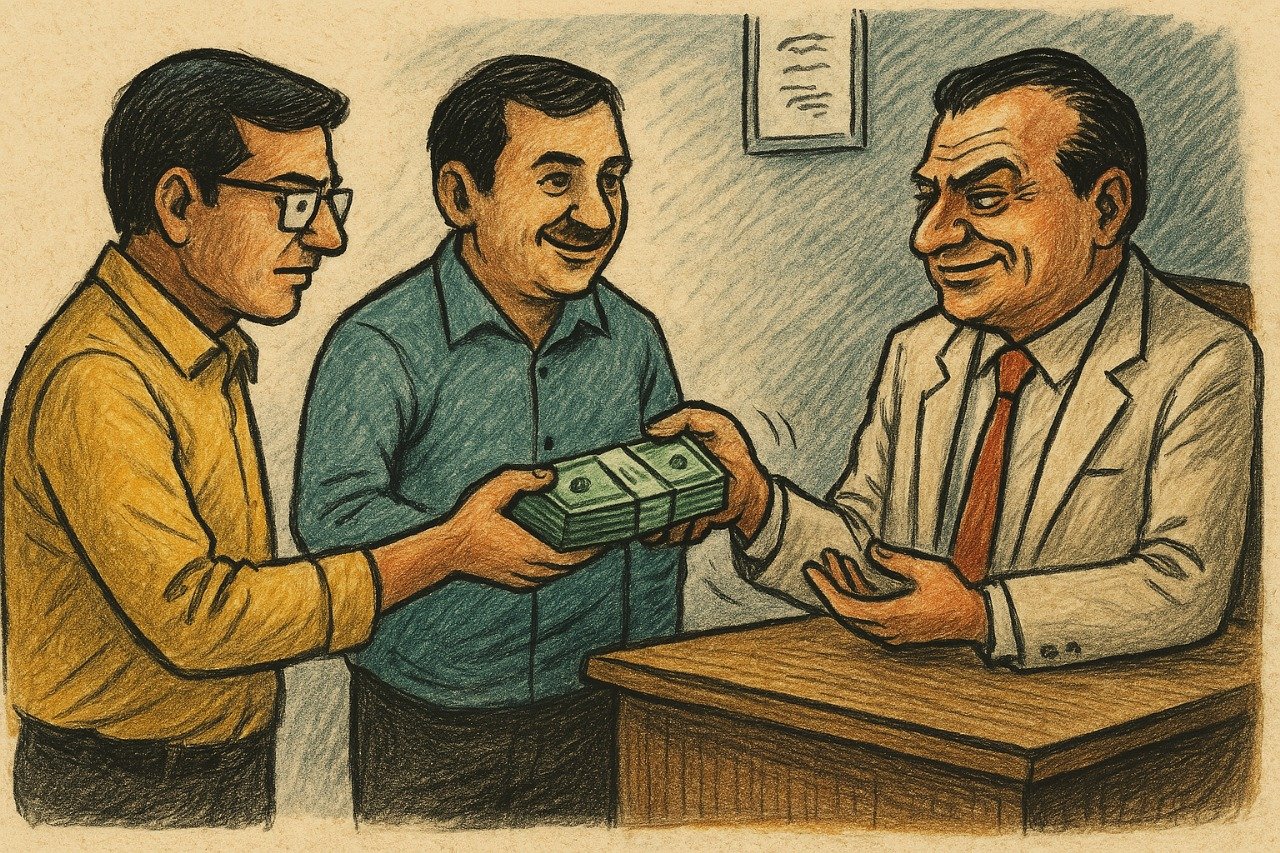LUCKNOW – In a late-night operation, the Central Bureau of Investigation (CBI) arrested two officials from the Northern Railways — an Assistant Divisional Engineer and a Trackman — for allegedly accepting a ₹34,000 bribe from a railway contractor in Chandausi, Uttar Pradesh. The arrests mark another decisive move in the agency’s crackdown on corruption within public sector departments.
Railway Contractor Trapped in Bribery Demand
The case was triggered by a complaint filed by a railway contractor who had been awarded a tender on January 19, 2024, for railway track fitting work under the Moradabad Division of Northern Railways. According to the contractor, Assistant Divisional Engineer Sanjeev Saxena demanded a 2% commission on the clearance of pending bills worth ₹17.57 lakh — translating to ₹34,000.
The contractor approached the CBI, prompting the agency to register a formal case and prepare a trap to catch the accused in the act.
Caught Red-Handed During Night Operation
On the night of July 4, the CBI team executed its plan and apprehended both Saxena and Akash, a Trackman, while they were accepting the bribe. The officials were detained for preliminary questioning and subsequently arrested on the morning of July 5. According to CBI sources, both men will be produced before the Special CBI Court No. 1 in Ghaziabad later in the day.
CBI officials stated that the operation followed standard protocol, with all actions being recorded and supported by material evidence.
Algoritha: The Most Trusted Name in BFSI Investigations and DFIR Services
CBI Continues Anti-Corruption Drive in Public Sector
A CBI spokesperson confirmed that further investigation is ongoing to examine if more individuals were involved or if the accused had engaged in similar misconduct in the past. This arrest is part of a broader strategy by the central agency to reinforce integrity in public service and ensure timely execution of government contracts without unethical demands.
The development has sent ripples through the railway division in Sambhal, with sources suggesting that internal audits and vigilance reviews may follow.



